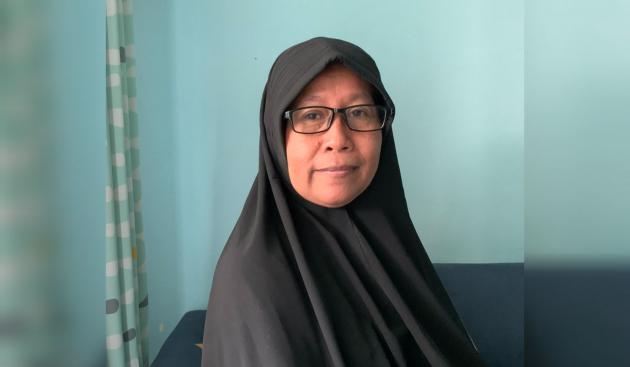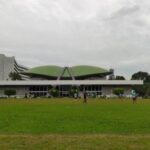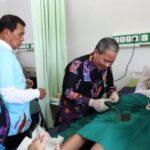Allah has reminded humans not to cause corruption on earth. Indeed, Allah does not like those who cause corruption. This is stated in the Quran, Surah Al-Qasas verse 77.
Allah also emphasizes in the Quran, Surah Ar-Rum verse 41, that corruption has appeared on land and sea as a result of what human hands have earned.
Referring to these Quranic verses, when events occur that endanger human life related to the universe, whether on land, sea, or air, the ones most responsible are the humans who manage it.
As happened in Cikande, Serang Regency, where the government through the Coordinating Ministry for Food Affairs designated the area as having a special event status due to exposure to Cesium-137 radionuclide radiation. The Coordinating Minister for Food Affairs stated in a coordination meeting that the special event status for Cesium-137 radiation only exists in Cikande and nowhere else. However, the Nuclear Energy Regulatory Agency (Bapeten) again found several new points contaminated with radioactive substances in Serang Regency, Banten, which were initially only detected around the Modern Cikande Industrial Area.
The discovery of Cesium-137 did not happen by chance, but it began when the United States rejected imports of frozen shrimp from Indonesia processed by PT Bahari Makmur Sejati (BMS) Foods. US Customs and Border Protection notified the US Food and Drug Administration (FDA) that Cesium-137 was detected in the containers of frozen shrimp that docked in Los Angeles, Houston, Savannah, and Miami.
What is Cesium-137?
Cesium (Cs) is a soft metal. It is flexible, silvery-white in color, and can easily melt near room temperature. Cesium is a byproduct of the nuclear fission process in nuclear reactors and nuclear weapons testing. In the industrial world, the most commonly known radioactive form of Cesium is Cesium-137. When the amount of Cesium is relatively small, it can be used for medical equipment and industrial measuring devices. However, in very large quantities, it can endanger living beings around it. Therefore, Cesium-137 must be tightly sealed in tubes.
An example of the consequences of Cesium-137 is when the Chernobyl power plant exploded in the Soviet Union in 1986. In that accident, Cs-137 spread to many countries in Europe. Even Northern Ukraine once became a dead city, uninhabited as its residents abandoned it since then. As known, Cesium-137 moves easily in the air, dissolves in water, and if humans are exposed, it easily settles in the soft tissues of the human body. Its spread is very rapid. It can cause burns, acute radiation sickness, cancer, and ultimately death.
Currently, it turns out that Cesium-137 is not only found in environments related to nuclear weapons or nuclear power plants. However, piles of scrap metal in industrial areas also have the potential to trigger Cesium-137 radioactive waste. This is proven by the discovery of the substance at used iron scrap yards.
A big question arises: where does Cesium-137 come from? It is suspected to come from imported waste or remnants of foreign industry that entered Indonesia undetected. If this is proven, it further emphasizes that radioactive threats are not only caused by major nuclear accidents but can also arise from poorly managed industrial activities.
What efforts has the government made after discovering Cesium-137 in the Cikande industrial area?
More than 1,500 people around the Cikande industrial area have been examined using the whole-body counter measurement method. After examination, it was found that several individuals were exposed to Cesium-137 in their bodies. The government will also take legal steps against the factory and area management if they are proven responsible for the spread of the radioactive material Cesium-137.
It is truly disheartening. When a problem surfaces, only then does the government become busy addressing it. Even though such problems are never completely resolved. There is a saying: prevention is better than cure. However, this does not apply in a government with a capitalist democratic system. What exists is only seeking maximum profit with minimal capital.
In the case of frozen shrimp exports, for example, the abundant supply of shrimp should first be given to the people themselves to meet their needs for animal protein. Instead of doing that, the shrimp are exported abroad. Even though they are eventually returned because they are proven to be contaminated with the radioactive material Cesium-137.
Regarding the issue of foreign






